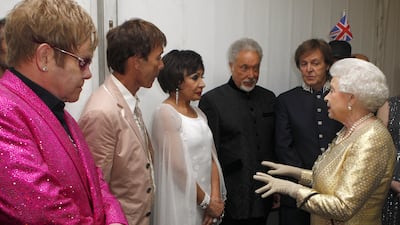With longer, richer and healthier lives, the people who celebrate their own platinum anniversary alongside Queen Elizabeth II by turning 70 this year have enjoyed great statistical good fortune.
The Institute for Fiscal Studies looked at how the lives of UK residents who are now 70 have turned out, to shed light on the social and economic changes that have taken place during the queen’s reign.
Of those born in 1952, 76 per cent of men and 84 per cent of women are still alive, making it to the age of 70, compared with just 34 per cent of men and 45 per cent of women who were born in 1882 and made it to their 70th birthday in 1952.
The platinum jubilee generation turning 70 now can typically expect to live until 86 if they are a man and 88 if they are a woman. Of the jubilee generation alive today, just over one in 40 men and just under one in 20 women are expected to still be alive in 2052.
Those born in 1952 have, on average, been better off during their lives than their fellow citizens, having seen substantial income growth and house price booms over their lifetime, the IFS said.
This generation benefited from the strong growth in earnings in the 1980s and 1990s in particular, and from the increasing generosity of the state pension in more recent years, according to the think tank.
When they were 25, at the time of the silver jubilee, their average incomes were £12,500 (in 2020-21 prices), compared with an average of £10,700 for the whole of the UK.
Their income peak came after the golden jubilee when, in 2005, they had average incomes of £27,800, £5,700 higher than the UK average.
They now have typical incomes of £26,400 per year, £1,500 more than the average.
More than four-fifths of the “platinum jubilee generation” are homeowners and around one in seven have a second home, according to a think tank.
In 1952, the average property price was £2,000 (around £40,000 in today’s prices), rising to £13,000 by 1977 (around £64,000 in today’s prices).
The average house price now is around £260,000.
But not all are well off and 18 per cent were in relative income poverty before the coronavirus pandemic, although this is lower than national average of 22 per cent.
In 1977, the silver jubilee year, those over state pension age were more than twice as likely to be poor than those under state pension age.
About 15 per cent have a degree or equivalent higher education, a proportion which is much lower than younger generations.
Around three-quarters are married, 10 per cent are widowed and 11 per cent are divorced or separated from a partner.
Longevity is the key
“The platinum jubilee generation, those born as the queen came to the throne, have seen huge changes over their lives,” said David Sturrock, senior research economist at IFS. “Life expectancy at age 70 has risen by six years between 1952 and today. Incomes and house prices have grown dramatically, making this generation the richest to date.
“These changes reflect some of the big economic and social shifts that have happened in the UK since the 1950s.
“Younger generations are much less likely to be homeowners and face a future in which we aim to rapidly reduce the environmental impact of our economy while providing for an ageing population.”







































































